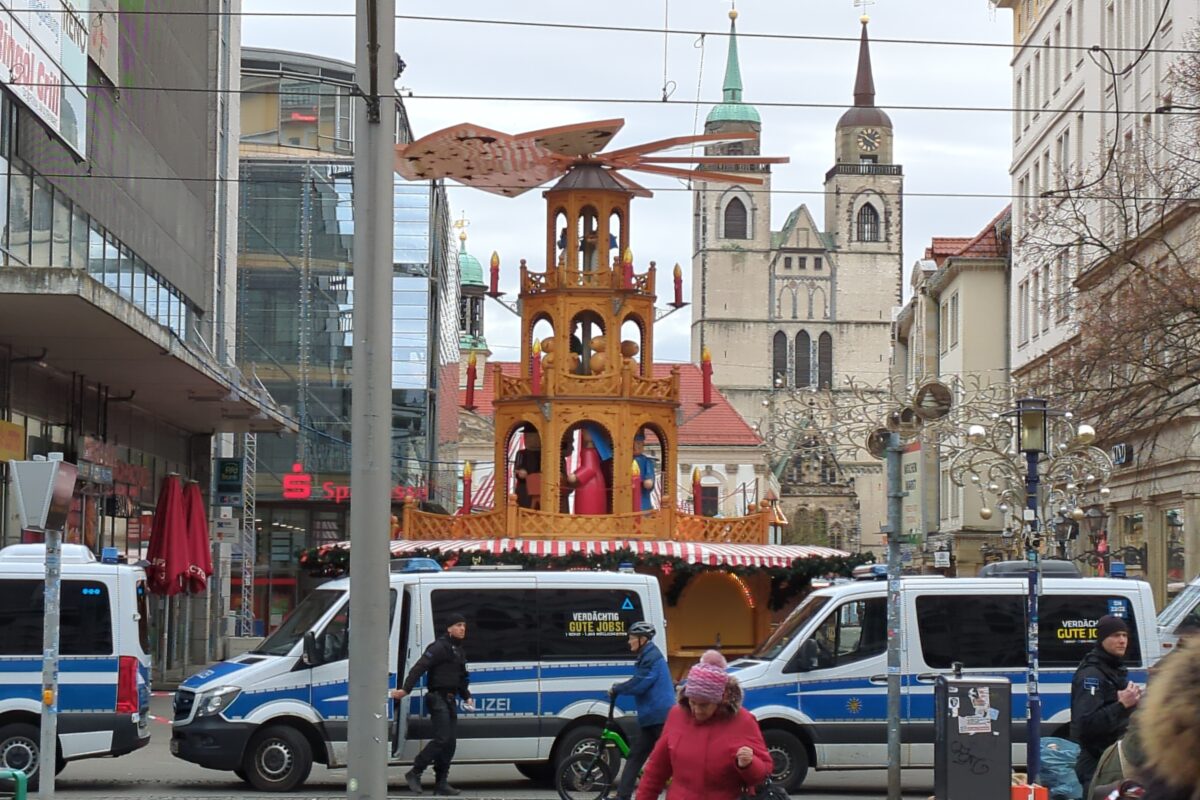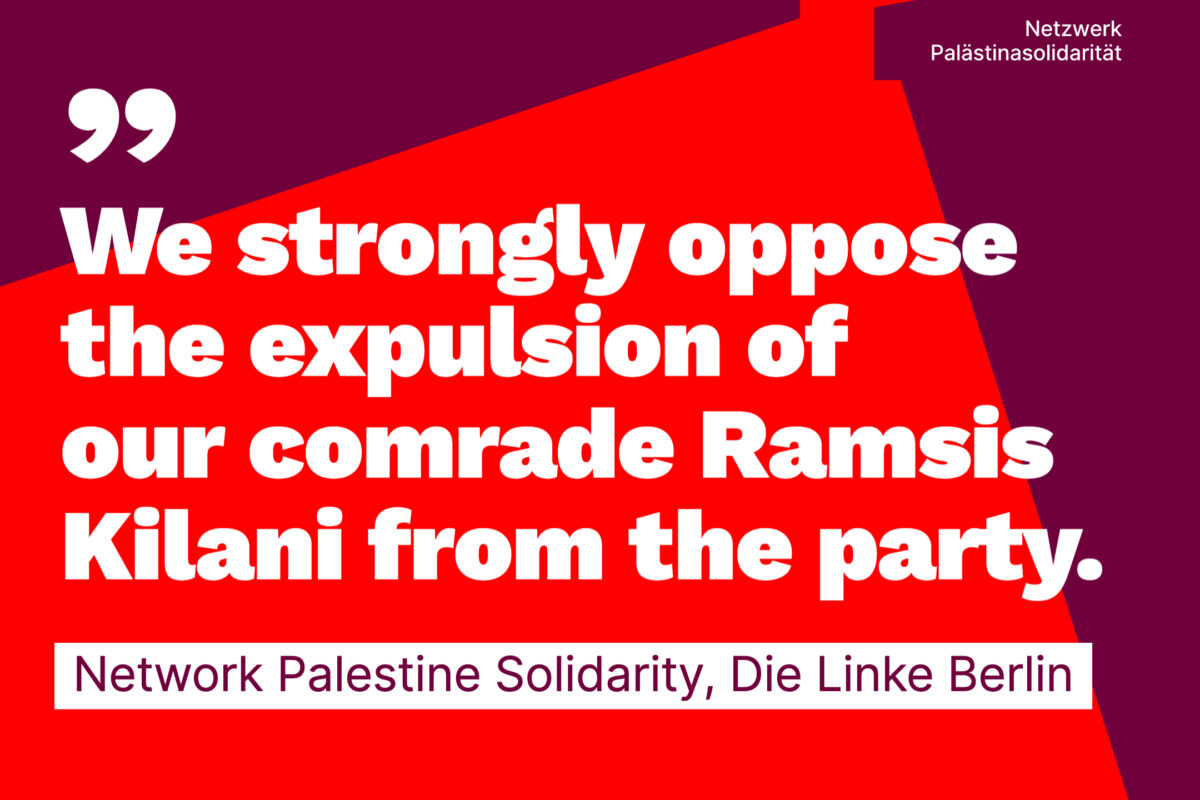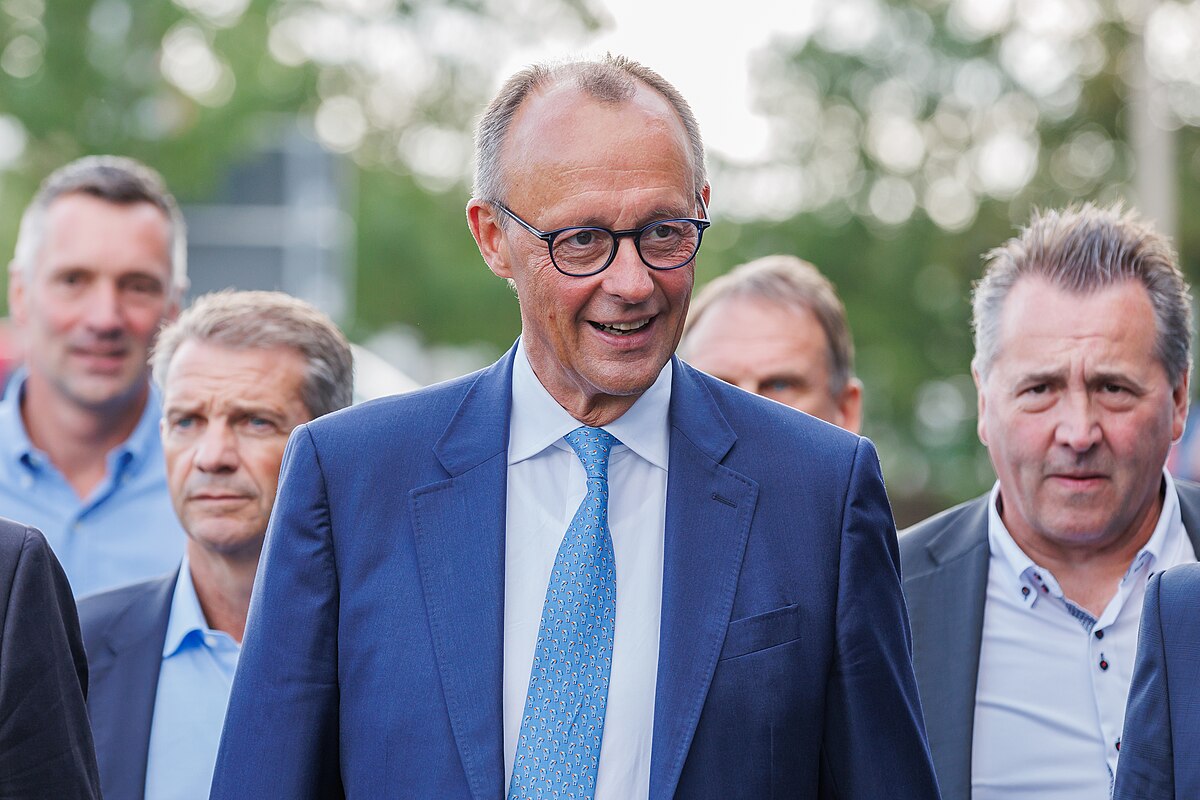On December 17th, the so-called “Union” of the Christian Democratic Union (CDU) and the Bavaria-based Christian Social Union (CSU) released their joint 80 page election manifesto, “Political Change for Germany”. Its contents are especially relevant since the Union, and thereby the CDU as leading partner, is well ahead of its competitors in current polling. The CDU will likely be an indispensable and leading partner in the next coalition to form the German government, following the February 23rd national elections.
The CDU ran Germany’s government for 16 years under Angela Merkel, before their main historical rival the SPD took over under Olaf Scholz. Scholz’s popularity has plummeted through his first term, and the SPD is currently polling in third place behind the AfD.
The CDU’s new leader Friedrich Merz will require a coalition partner though. Since the CDU is unwilling to work with the far-right AfD, they will look elsewhere. The neo-liberal FDP is a natural ally here, but they had a disappointing time in the current Ampel regime and a scandal and drama-filled exit. The FDP’s ability to even crack the 5% threshold required to make it into the Bundestag is in question.
This has led to the somewhat ironic possibility of allying with the ever-rightward shifting Grüne, who Merz has recently claimed holds a similar foreign policy to his party. Should the Greens not get enough seats, a “Black and Red” coalition with the SPD may be necessary, albeit awkward.
Merz is himself an interesting figure, a clear careerist politician who held a long-time dislike for Merkel after she demoted him in 2002. In his recent speech to the party he claimed he would have been satisfied as a “simple Bundestag member” (einfacher abgeordnete), despite the fact that he became leader of the party only upon his third time running for the position.
Merz has been critiqued for his position on women. He mostly speaks of violence against women in relation to racialised migrants; and critiques the current government’s promotion of women to high roles he considers them unqualified for. With a pseudo-feminist spin he explains that these promotions “aren’t doing women any favours either.”
Now, seemingly on his way to leading the German government, the CDU’s election programme lays out what Merz hopes to achieve when he finally becomes chancellor. It makes it clear that a CDU election victory would see austerity through tax cuts, increased militarisation, and serious steps backwards for social issues.
Austerity and Neoliberalism
The CDU previously made clear its intention to maintain a balanced budget through the so-called debt-brake. As Der Spiegel has reported, this would be difficult considering their plans to cut taxes and increase military spending. To achieve this, the CDU’s election programme has social cuts and other forms of austerity scattered throughout it, justified through claims of ‘increasing efficiency’.
One example is eliminating the current Bürgergeld system (social benefits), and building something new in its place. This comes after recent reforms to replace Hartz IV with Bürgergeld. The CDU’s plans are vague, and do not state what the replacement would be, only that “Wer arbeiten kann, muss auch arbeiten” (who can work, must work), and that they intend to increase support for job centres.
The programme also announces a so-called ‘modernisation’ of working hours. Germany currently has strict limits preventing workers from working more than 8 hours a day, or 48 hours a week (with some exceptions for overtime, etc), but the CDU wants to get rid of the daily limit. This would allow employers increased flexibility to overwork their employees.
They will also overturn the recent Lieferkettengesetz (supply chain law) which sought to limit human rights violations used in the production of goods bought in Germany. The law was the result of intense campaigning, and only passed in 2021.
On several points, the CDU expresses its support for the status quo, seemingly hoping to put fears aside. One is their promise to maintain Germany’s current retirement age of 66 years old. More problematic is healthcare. While many will likely breathe a sigh of relief that no cuts appear to be coming, maintaining the status quo while nurses have been striking for better conditions is hardly a generous promise.
Perhaps the most ridiculous proposal the CDU has for saving money is at universities, where they suggest that campuses rent out their equipment for a profit. Beyond the logistical headache of such a proposal, the idea undermines the very idea of a university based on public good, taking ongoing privatisation to a new level.
In the realm of housing, the CDU recognises that they have something of a crisis. Rather than take on predatory landlords or building social housing, they call for increased privately-financed housing construction. To this effect, they will reduce the regulations for construction of new buildings. While they claim to want to do so responsibly, the echoes of Grenfell Tower in London are noticeable. Reducing regulations will likely lead to the construction of dangerous buildings, to be filled primarily by low income families.
Tax Cuts
The other side of the CDU’s austerity measures is their proposed tax cuts. While they explicitly state they want to lower Germany’s corporate tax, they also often use tax cuts to replace greater investments.
Housing is an example of this. Rather than investing in social housing or similar measures, the CDU promises tax benefits for landlords who charge below average rent in a locality. This clearly benefits the landlord rather than the renter, and actively encourages slum lords. Rather than creating decent housing, the faceless corporation or distant business man will save money on their run-down apartment block, just because it’s in a nice neighbourhood.
A similar approach is taken to Kitas (daycares). Rather than increasing funding, or improving social services to support children and parents in precarious situations, they offer tax cuts for Kitas themselves and for single parents. Considering daycares are already understaffed to the point of calling unlimited strikes, which were in turn banned by a court, tax cuts are no replacement for major reinvestments.
Finally, the CDU wants to cut the Solidaritätszuschlag, a tax which essentially serves to redistribute money from the richest states towards the poorest. The FDP tried to get rid of this for a while, as did the CSU based in Bayern, a rich state which pays large amounts through the tax.
Saving the Climate Through the Free Market
Other austerity measures are masked as necessary for protecting the environment. The CDU recognises the importance of the Paris Agreement, and the need to move away from coal. Their strategy for climate protection is best summarised in their own words: “mehr Markt, weniger Staat” (more market, less state). They claim that allowing the free market to compete for the cheapest energy will help the climate, as if that isn’t the very system which destroyed our planet. Predictably, this means cutting taxes.
The election platform says it will reduce taxes on electricity. Since much of Germany’s electricity is produced by coal, it is unclear exactly how this will help the environment. Likewise, while they want to make transport cheaper, their actual proposal includes reducing CO2 costs, not exactly as climate-friendly as, say, investing in better public transportation.
The CDU also states its intention to increase the use of nuclear energy, something the German climate movement has fought against for decades. Likewise, they support the use of carbon trading, another free-market supposed solution to the climate crisis. Finally, reminiscent of the Berlin CDU’s latest election campaign, the federal party also wants to protect the auto industry and car users.
Militarisation
When we turn to its plans for the Bundeswehr, the CDU’s austerity plans suddenly puff into smoke. Merz has reportedly been jealous of Scholz’s work remilitarising Germany, and wants to take the mantle on himself. The CDU plans to increase the army’s personnel from 180,000 soldiers to 203,000, as well as instituting more public oaths and other forms of support for German soldiers.
While their programme doesn’t make concrete budget suggestions, it’s clear they want to spend more as well. While NATO demands its member states spend 2% of their national GDP on the military, the CDU states this is a lower limit of how much they will spend.
The CDU also points to a slow implementation of some sort of conscription, although again details are vague. They want to implement a year of community service alongside military conscription, and appear to be planning on reimplementing the German system in place until 2011. Then 18 year olds would have a choice of serving in the military or some sort of social service.
Other military proposals include the CDU’s support for the stationing of American long-range weapons in Germany.
Abortion and Queer Rights
Despite assurances they want to protect women when talking about ‘Islamists’, when it comes to abortion rights the CDU drop this protective role. They make their position clear in stating their full support of the Paragraph 218, which makes abortion a criminal offense, despite some leeway in practice.
They justify this by claiming that 218 was the product of a long negotiation between different parts of society, when in reality the law is a relic from the year 1871. Maintaining Paragraph 218 would continue the current situation of heavily limited access and restrictions for abortion.
The CDU’s proposal for trans rights is also bleak. Their programme openly states an intent to revoke the Selbsbestimmungsgesetz (self-determination law), which made the limited improvement that people could change their name and gender at the registration office without a letter from a mental health professional.
Perhaps more dangerous than the revocation itself, they justify their stance (rooted in the party’s right-wing Christian roots) by drawing on the far-right narrative that queer rights are somehow a threat to children. The section revoking the Selbsbestimmungsgesetz is titled “Protecting kids and youth instead of identity politics”, and discusses the “volatile period of puberty”. It is hard to see this as anything other than a far-right dog whistle.
They also state that a Zweitberatung (second consultation) is required before adults change their gender. There are already swathes of medical documents needed, including documentation showing at least eighteen months of therapy. Seemingly, the CDU states that on top of these eighteen months a second medical professional’s opinion is needed, adding to the needed legal and medical loopholes for affirmation.
Recht und Ordnung
In the section titled ‘law and order’, their election programme rolls back other recent liberal changes. To begin, they state that they want to revoke the Ampel’s limited legalisation of cannabis, claiming that it protects dealers and puts kids in danger.
Likewise, the partial victories which activists secured in mandating police to portray identification numbers, will also be undone. They also plan to revoke the requirement for police to show identification when asked. This gives police officers increased ability to remain anonymous and unidentifiable when they commit crimes and abuses.
There is also a tech-bro aspect to the CDU’s programme on Artificial Intelligence, demanding it be given bureaucracy-free space for innovation. Clearly, they want to make Germany into some sort of tech capital, and they hope to be able to rely on private capital to do so.
They point to AI’s potential in Germany’s Bundesamt für Sicherheit in der Informationstechnik (Government Ministry for Security and Information Technology, BSI). While they want to increase the power of the BSI, even giving it an influence similar to the Verfassungsschutz (internal security), they also want to automate its data analysis through AI. Considering the regular scandals regarding AI’s racism, it doesn’t take much imagination to predict the effects of such a move.
Citizenship and Visa Reforms
The CDU intends to revoke the Ampel’s citizenship reforms. This would mean longer waiting times before people can apply for German citizenship, and revoking the possibility of keeping a second passport after receiving a German one. It is unclear whether they would also make it more difficult for people seeking permanent residency, or undo some of the new forms of visa which the Ampel introduced.
Key for the CDU is that integration comes before someone receives citizenship. This is their justification for reintroducing longer waiting times for German citizenship.It also leads them to stress that people must have a high level of German in order to receive citizenship. It is unclear what exactly they consider to be a ‘high level’.
The CDU also plans on implementing the recognition of Israel’s Existenzrecht (right to exist) as a precondition for receiving German citizenship, in line with the Staatsraison. While this has been implemented in some states already, the CDU would apply this across the country.
For people with dual citizenship and those living in Germany with Aufenthaltstitels (residency permits), the CDU plans on introducing new ways for these rights to be stripped (removing citizenship from people without a second passport is much more difficult, legally speaking). Those accused of supporting terrorist organisations or threatening the democratic order, both accusations often thrown at left-wing groups, could lose their right to live in Germany. Added to this, anyone seen to be pushing for an ‘Islamic state’ could also see dual citizenships or Aufenthaltstitels revoked.
The CDU would also include antisemitic criminal offences, this likely includes Volksverhetzung charges (which protesters often receive at Palestine-solidarity demonstrations) as grounds for deportations. Even people claiming asylum could be deported for such charges, they claim.
Migration and Borders
Unsurprisingly, Merz’s CDU distances itself from Merkel’s welcome of Syrian refugees in 2015. They propose multiple ways to militarise Germany’s borders and prevent people from entering the country, including by ending family reunifications, and increasing deportations of those already here.
At the German border, the CDU states its intention to maintain border checks in place indefinitely. For the EU borders, the party states that it wants to give more personnel and power to Frontex, the corporation responsible for drones which gather information to support the use of pushbacks in the Mediterranean.
Further, they plan to assigning Frontex the responsibility of ‘protecting’ sections of the border, giving them ‘territorial authority’ (hoheitliche Befugnisse). The exact implications of this are unclear, but clearly mark an increase in power for Frontex. It makes them legally accountable and further limits the already low possibility for legal challenges to abusive practices.
Another change the programme plans is that people facing deportation orders would be held by the Bundespolizei until their deportation. Beyond the inhumanity of imprisoning people simply for seeking safety, tactics of physically delaying deportations often win crucial time for migration lawyers to collect and submit documents which prove that their clients have the right to stay in the country. But streamlining the process of deportations, the CDU would eliminate checks and balances lawyers can use to support people.
The CDU would also follow the Ampel in deporting people to Afghanistan, and states it would deport people to Syria as well. The programme names the need to identify more ‘safe countries of origin’, i.e. countries deemed safe enough that those who fled from there to Germany could be legally returned. The process of ‘identifying’ more countries doesn’t mean better research, but simply lowering the standards of what is considered a ‘safe country’.
Further, the CDU calls for an EU-level reform to allow for the creation of third state holding centres. This mirrors the Tory party plans in the UK to send people to Rwanda, and Meloni in Italy’s plan to send people to holding sites in Albania. Both these attempts faced court challenges, and the CDU seemingly intends to side-step this issue by simply changing the laws. Exactly where Germany would send people is unclear, but they imply somewhere outside of Europe.
Differentiated Treatment of Religions
While advocating for an ‘Islamic state’ would be reason enough to strip citizenship, the party sees itself as protecting Christian holidays and Sonntagsruhe (Sunday Calm). It is the Christian Democratic Union, after all. There are also noteworthy differences with how the party refers to discrimination towards different groups in its programme.
Antisemitism gets several detailed paragraphs of denunciations and statements of intent. But there is no mention of the CSU’s willingness to work with someone who carried antisemitic pamphlets around during his youth. These paragraphs are then followed up by a single paragraph about repression of Muslims. The word Islamophobia is not used throughout the document, but is most noticeably absent here. The closest they get is stating “Wir dulden keine Abwertung von Muslimen” (We tolerate no degredation of Muslims).
Yet when it comes time to speak about ‘Islamism’, the CDU’s programme makes up for its earlier lack of attention. They plan on shutting down mosques deemed to preach hate or antisemitism, thereby increasing the policing of Islamic institutions. They also wish to restart the government’s expert group on ‘political Islam’. It is perhaps unsurprising that they don’t plan on starting an expert group on ‘political Judaism’, although it could be argued that the CDU is by definition an expression of ‘political Christianity’.
Its plans for fighting antisemitism unsurprisingly focus on protecting Israel instead of Jews in Germany. They plan on making denial of the ‘Existenzrecht’ of Israel criminally punishable, since it is part of Germany’s Staatsraison. The authoritarian undertones are apparently justified in the fight against Israelhass.
The controversial IHRA definition also plays an important role in their plans. The definition was recently the subject of protests in Berlin when the local CDU sought to force cultural and artistic workers to sign on to the definition to receive state funding. Now at the federal level, the CDU is proposing making all civil society organisations recognise both Israel’s Existenzrecht and the IHRA definition in order to receive state funding. While the attack on the arts in Berlin failed, they will now be redirected towards all civil society groups across the country.
Conclusion
The wide-ranging effects that the CDU programme would have on German society if implemented are frightening and cause for anger. There is a chance that they would be moderated if the party was forced to form a coalition with the SPD to form a government. However, considering how difficult the CDU has found it to differentiate its policies from the current regime, it is hard to imagine any major effect.
Should basic rights and recent victories be protected — whether the Selbsbestimmungsgesetz or right of asylum — any CDU-led government will need to be widely opposed. These immediate and urgent aspects are important. As crucial is opposing the austerity measures which would strip safe housing and continue to slowly destroy Germany’s hospitals and Kitas, not to mention reduced building regulations putting families at risk for generations to come. There is plenty of work for the Left to do.




